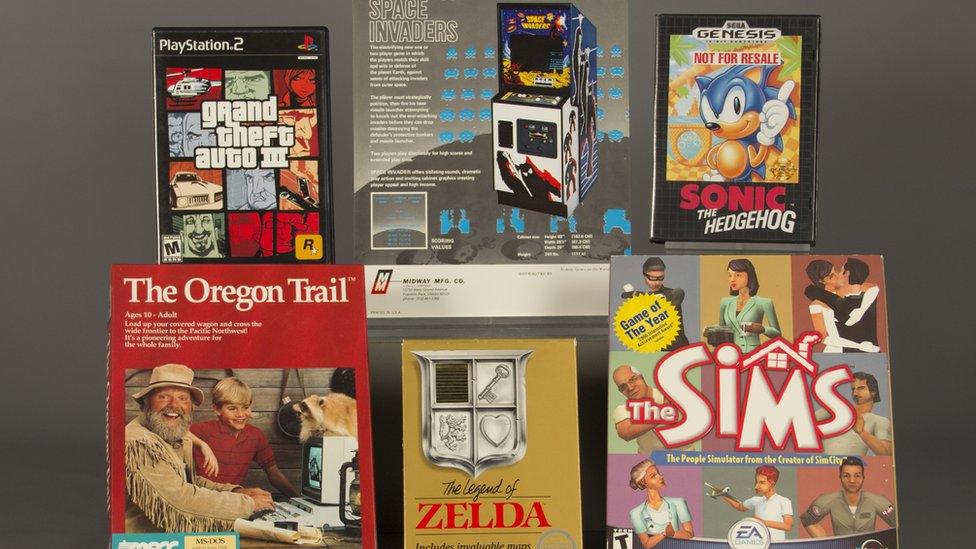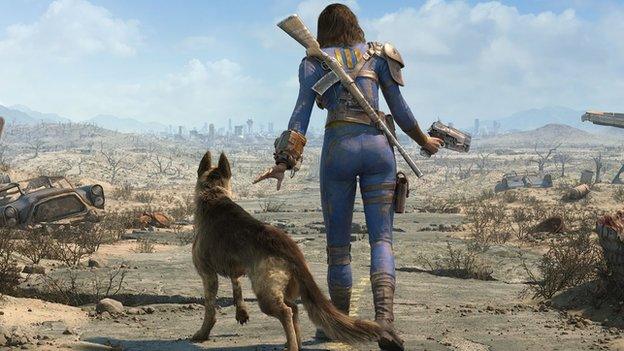Space Invaders and Sonic added to gaming hall of fame
- Published

This year's six inductees to the Hall of Fame span several decades and devices
Space Invaders has been inducted into the World Video Game Hall of Fame, almost 40 years after its release.
The 1978 space shooter was honoured alongside Sonic the Hedgehog, The Legend of Zelda, The Oregon Trail, Grand Theft Auto III and The Sims.
They join the six inaugural titles from 2015: Doom, Pong, Pac-Man, Super Mario Bros, Tetris and World of Warcraft.
Titles are selected for the US-based museum based on their status among players, longevity and influence.
Hall of fame games become permanent exhibits at The Strong museum of play in Rochester, New York.
The winning games were selected from 15 finalists, which included Final Fantasy, Tomb Raider and the original Pokemon games.
The inductees span genres, decades and platforms but "all have significantly affected the video game industry, popular culture, and society in general," the museum said.

Space Invaders was released in 1978
"Although a handful of shooter games preceded Space Invaders, its runaway success, innovative features, compelling graphics, and elemental themes captured the public imagination, spurring many imitators and a craze for arcade games," said Jeremy Saucier, assistant director of The Strong's International Centre for the History of Electronic Games (ICHEG).
Oregon Trail, in which the player controls a wagon of settlers crossing the West in the early days of American settlement, is fondly remembered by many for its fun approach to education as well as its difficulty, which saw players frequently "die" of dysentery.
'Virtual dollhouse'
Grand Theft Auto III, a game with violence and mature themes, made headlines when it was released in 2001. It was a big commercial success, selling 14 million copies.
"Grand Theft Auto III renewed debates about the role of games and violence in society while it signalled video games aren't just for kids," Mr Saucier said.
The Legend of Zelda and Sonic the Hedgehog were the first entries in long-running franchises for Nintendo and Sega respectively, and remain popular today. Both games spawned multiple sequels and spinoffs, including cartoon series.
The Sims, released in 2000, was described by the museum as a "virtual dollhouse game" in which players manipulate digital characters to create their own stories.
"The game has had universal appeal, with female players outnumbering males, and adults as passionate about the game as children," said ICHEG director Jon-Paul Dyson.
"By turning the computer into a toy to explore the complexity of the human experience, The Sims radically expanded the notion of what a game could be."
- Published21 March 2016

- Published15 April 2016

- Published7 April 2016
